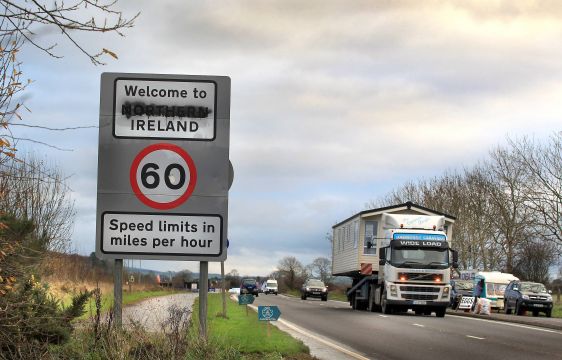A report has found that productivity levels in the Republic have grown to 40 per cent above Northern Ireland’s in the last 20 years.
It also revealed that export intensity is an important factor in driving economic productivity south of the Border.
The Economic and Social Research Institute (ESRI) think tank, which produced and published the report in partnership with the Taoiseach’s Shared Island Unit, examined trends in productivity across the island.
Productivity is measured as the gross value added per worker.
Among the report’s main findings were that productivity levels in the two regions were similar in 2000 but in the past 20 years they have diverged, with Ireland’s increasing and Northern Ireland’s “trending downwards”.
As of 2020, the Republic's productivity levels were 40 per cent higher compared to Northern Ireland.
In 17 sectors for which there is comparable data, productivity levels in the Republic “noticeably exceed” Northern Ireland’s in 14 sectors, with large gaps in administrative and support services, finance and insurance, legal and accounting, and scientific research.
Northern Ireland has an advantage in electricity and gas supply, as well as construction, the research found.
Education
The ESRI’s model shows Republic's productivity increases with the employment share of educated workers and levels of investment.
For example, if there is a 1 per cent increase in the share of graduates employed, it generates a 1 per cent increase in sectoral productivity.
But the ESRI said there was “no evidence” of a similar link between a range of factors and Northern Ireland’s productivity.
The report’s analysis said this raised questions about the competitiveness of the North's economy and responsiveness to changes in “key policy” areas.
“The models for Northern Ireland do not show significant results for the usual drivers of productivity levels,” it said.
“It may be the case that there are other economic, social and political factors that need to be considered in devising a policy response.
“It is possible that the impacts of the Troubles, a relatively closed economy in terms of international trade, peripherality, limited results from regional policy and a historical reliance on public sector employment have all combined to subdue the impact of market forces among Northern Ireland firms leading to a productivity trend that appears largely exogenous with respect to key policy variables.”
The ESRI said its analysis showed a need “to rapidly expand investment and improve skills in Northern Ireland, particularly at the post-secondary level”.
The research shows a widening productivity gap between Ireland and Northern Ireland
“However, our models also suggest that without a comprehensive strategy aimed at improving competitiveness among Northern Ireland firms, the reform of education and skills provision and increasing investment in isolation are not guaranteed to enhance Northern Ireland’s productivity.”
One of the report’s authors, Professor Adele Bergin, said: “While some existing studies have compared Northern Ireland’s productivity to that of regions in Britain, we believe that this is the first comprehensive study to compare productivity in Ireland and Northern Ireland.
“The research shows a widening productivity gap between Ireland and Northern Ireland; with productivity per worker being approximately 40 per cent higher in Ireland compared to Northern Ireland in 2020.”
The second author of the report, Professor Seamus McGuinness, spoke at a recent Belfast event organised by pro-Irish unity group Ireland’s Future.
At the event, he said gaps in education are among the factors that are driving Northern Ireland’s “lower relative productivity”.
“Early school leaving in the North is estimated to be two to three times higher than in the Republic,” he said.
He argued that the need for subvention costs in the event of Irish unity “only exists because of the North’s low productivity”.
“In the event of a border poll ratifying reunification, a transition period will be necessary to allow for the operational responsibility of the North to transfer to the Republic.
“Planning needs to focus on policies aimed at improving the North’s low productivity during that transition period so that the issue of subvention becomes an irrelevance at the point of reunification.”







